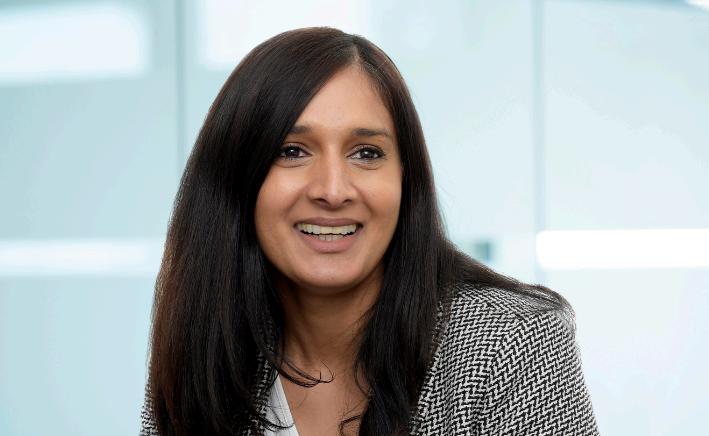

ESGIgnite:Unlocking environmental,social andgovernancepotential
Part 4: Measuring, reporting and communicating your story



ESGIgnite:Unlocking environmental,social andgovernancepotential
Part 4: Measuring, reporting and communicating your story
ESG Ignite is a series of reports aimed at helping organisations to take a proactive and positive approach to environmental, social and governance issues. Rather than a regulatory burden, ESG is treated as being fundamental to building strong, future-proof foundations.

The series includes thematic insights highlighted during in-depth, face-to-face interviews with 60+ senior leaders across a diverse range of sectors. The aim was to gather insights and opinions about how they are responding to ESG challenges and opportunities.
To stay up to date on the latest ESG developments affecting clients across Mills & Reeve’s sectors, sign up to our blog, listen to our podcast or visit our dedicated ESG page.
Introduction: Limited progress, maximum opportunity | Page 1
Situation:
Aiming for authenticity | Page 4
Seeking standardisation | Page 6
Restrained by resources | Page 8
Practical steps:
Organisations making strides | Page 10
Guide to ESG reporting standards and frameworks | Page 12
Guide to authentically communicating your ESG story | Page 15
Get in touch | Page 18

In our discussions with senior leaders on environmental, social and governance performance, no topic sparked as passionate debate as measuring, reporting and communications. These three areas go hand-inhand: measure well and you will have the evidence to create meaningful reports and communications which avoid greenwashing and greenhushing. However, at this moment in time, ESG measurement is patchy and reporting frameworks are overly complex, making clear communications almost impossible.
When we asked leaders how their organisation measures ESG, the most common response was that they were still gathering data before even setting their measuring scope. Many were still determining the credentials they needed before committing to any standards. This may be worrying but perhaps unsurprising when coupled with the news that nearly half of companies still use spreadsheets to manage their complex ESG data (KPMG). We have not come as far in this area as it might seem.
This practical report in our ESG Ignite series reveals the key issues affecting measuring, reporting and communications within the ESG landscape. It reveals how organisations are adapting before providing two guides: one focused on standards and frameworks, and another dedicated to communication. Get this all right and it can help set the foundations of organisational success and credibility, so, I hope you find this report useful as you look to highlight the ESG initiatives underway in your organisation.
Associate Mills & Reeve
We are currently still gathering data before setting our measuring scope We are measuring our carbon footprint We use an external tool/business tracker 1 2 3 We have benchmarking programmes We have KPI measures 4 5
We are still determining which credentials we need We are committed to sector specific standards and accreditations We adhere to ISO 14001 1 2 3 We have committed to becoming net zero 4
Our in-depth conversations with senior leaders in large and mid-sized organisations reveal a raft of issues that are affecting measuring, reporting and communications efforts.





A significant frustration for many leaders is that it is hard to distinguish between companies that are really leading the way in ESG and those who are just communicating more forcefully.

“If you go on to some institutions’ websites, you'd think that the only thing they did is ESG. When you dig into it, it’s probably one or two deals a year. It’s window dressing."
Stuart Ferguson, Investment Partner, Sustainable Ventures
"Sometimes I see that organisations have all kinds of ambitious targets and glossy strategies and annual reports, but when you start looking into it, it is not that different to what we do. It is only that we are not as savvy at communicating about it."
Emmanuel Deschamps, Associate Director, Sustainability, Harwell Science and Innovation Campus
“We have never brought it all together as a consistent narrative, which is frustrating when we are bidding against organisations who have got their house in order.”
Education charity
“There are some businesses that just won’t really go above and beyond the basic ESG metrics because it is not in their interests. It’s not good for their business. And that’s fine, but then they shouldn’t be able to put a label on.”
Fund manager
Many leaders are nervous of their organisation appearing to overstate the truth.
“One of the principles of us working on ESG is we do not want to be greenwashing. Anything we do and say has to stand up to questioning. We are not seeking to compete with other people in our industry on the basis of who says the best thing in their report.”
“We do lots of things really well, but we don't talk about them or we don't codify them. So it looks like we're not doing them. So there's a whole kind of untapped potential, the organisation is more sustainable than it appears on the outside.”
“How do I give the assurance that I want to give internally but also that's meaningful externally and it's not just me spinning a good story?”
Steve Gilley, Director of Infrastructure, University of BradfordOthers do not believe they have a good enough story to tell.
“We are already doing a lot of ESG but we need to articulate it better.”
“A lot of the most effective ESG we are doing is not very glamorous.”
“We often receive attention in the press for our efforts in vaccine development. But if you look at the relatively small amounts of funding distributed in a tightly controlled and supportive manner, you'll find that it's the foundational scientific work that enables broader impact. Many organisations are engaged in positive initiatives, often at a local level and with low visibility. It's challenging to show the importance of this type of activity and help people understand its significance." Global health partnership organisation
Another key area of concern for leaders is that reporting has not yet been standardised.
“I am looking forward to the day that we move away from generic labels and actually have clear certified, reference points against everything it is that we are doing.” Fund manager

“There's no way of measuring it apart from mine’s bigger than yours. This lack of ability and reporting and metrics to measure is endemic. It has to be something that people can pick up really simply and understand.”
“I think that there are either too many or it's bewildering or there isn't a common language or understanding and there's no authority body. You don't get rapped on the knuckles if you don't do a good ESG report. Whereas in the financial world there are reporting rules and a level of sophistication and transparency where there's a market effect or where something is done in the right or the wrong way, and I don't think there is a market effect within universities.”
Alistair Lomax, Director, Arc Universities Group
“The difficult thing is to find commonality amongst different business models so that you’ve got hard metrics. It’s not easy to compare one business with another and come up with a common set of standards –it’s pretty much impossible.”
Stuart Ferguson, Investment Partner, Sustainable Ventures
Many are calling on the government to step in to hold everyone equally to account.
“It’s The Prisoner’s dilemma. If you are the only person doing it then it is not appealing but if the government forces everyone then it’s not so bad.
“If we had more support and took a similar approach to, for example, GDPR, people will upskill as quickly as they did for that change.”
Dr Victoria Hands, Director of Sustainability, Open University
“The UK laws and carbon reduction targets are helping but it is not enough really.“
It has not happened quickly enough and if we were to roll forward, I think we will run out of time unless we have some severe government intervention.” Education institution

There is a perception that any but the largest organisations are always going to struggle to measure ESG effectively because of the time and resources required.

“So much of the ESG advice available is aimed at listed or later-stage companies who have the resources required to drive sustainability strategies and carry out effective measurement.”
Emily Matthews, Responsible Investment & ESG Manager, Oxford Science Enterprises
“Sometimes you can focus too much on the details and don’t deliver the action needed. I think everybody's got the same kind of challenges with data but we need to not let that hold us back in taking action.”
Insurance client
“No-one’s cracked it yet. Without accountancy measures, where you’re properly accounting for emissions for instance, it is really hard to measure.”
Stuart Ferguson, Investment Partner, Sustainable Ventures

Some leaders were keen to highlight the key steps their organisation is taking to improve their measurement, reporting and communications.

“The term ESG might not survive another 20 years. But its concepts are going nowhere and indeed likely to become increasingly important for outcomes on both sustainability and financial return: human capital and the importance of future people, natural capital and the services that we all rely upon, robust governance among boards, management teams and investor rights, and the risks and opportunities from climate change.”
“Any business can integrate these factors, for example for us it’s in investment decisions. Any business can engage actively for sustainability risk and opportunity and have a dialogue with their stakeholders, like colleagues and clients. And surrounding all of this is transparency, being authentic, reporting what has been done and letting stakeholders form their own conclusions. This is how we approach the ESG challenge.”
Roger Lewis, Head of Responsible Investment, Downing“We have got a social value calculation which was put together by an external team of economists. We commissioned them to build a model for us then we plug in the inputs and the outputs that are generated from our sites. In this way, each year we can publish what social value we have delivered.”
“We have been on a journey ourselves about understanding the value that we create. In particular understanding the social value that is created on the green spaces that we own and manage. In terms of the wider economic value that is created by people being healthier, people getting into work, people being trained. That has a measurable saving to the public purse.”
Alan Carter, CEO, Land Trust
“We took part in benchmarking programmes, for instance, the largest student campaign group in the UK, People and Planet, has the University League which ranks institutions across their sustainability performance in 13 different assessment criteria.”
“I'm really fortunate to have some great people in the sustainability team. We have students on paid interns in the team, and they've all been absolutely fantastic. They are already really committed.”
Karl Letten, Environmental and Sustainability Manager, De Montfort University
“We need to think differently about reducing carbon. We are all keen to take action but to enable this, we need to ensure that everyone has the tools and the know-how to do it. At Urban&Civic we reduce carbon by setting bitesized actions rather than concepts which are difficult to grasp and understand. To reduce carbon on a strategic site, we communicate simple actions in a very clear way. We have to get the language right.”
Richard Quartermaine, Head of Sustainability, Urban&CivicESG reporting standards and frameworks are often referred to as “alphabet soup”, but the many acronyms are far from the only reason this area is so difficult to navigate. It is fraught with interoperability issues, lack of harmonisation and duplication. Data quality, reliance on voluntary self-disclosure, and the ability to define what is material for your own organisation all contribute to the complexity.
As a result, there is incredible inconsistency in how companies currently report their ESG activities. This will continue to be the case until reporting and disclosure is standardised, like financial reporting for publicly listed companies. Strides are being made to harmonise reporting. In June 2023, the International Sustainability Standards Board (ISSB) issued its first two Sustainability Disclosures Standards, intended to be a global baseline for ESG disclosure. In Europe, the EU Corporate Sustainability Reporting Directive (CSRD), which came into force in January 2023, aims to ensure that ESG disclosures are reliable and consistent by mandating reporting according to the European Sustainability Reporting Standards (ESRS). Finally, in the UK, the government has announced plans to launch UK Sustainability Disclosure Standards which will be fully aligned with the ISSB standards.
But at this time, no one-size-fits-all: it is up to each individual organisation to decide the right approach. This should be driven by several factors...
Judith Houston (she/her) Associate Mills & Reeve
Know what is legally mandated based on entity or industry. Publicly traded companies, for example, face different reporting expectations to privately held businesses. In regulated industries such as finance, organisations may have prescribed reporting requirements from a regulator like the Financial Conduct Authority.
Prioritise frameworks that align with the ESG matters that are material to your organisation. Materiality generally refers to the relevance and impact of specific ESG issues on operations, stakeholders and long-term sustainability. The EU’s CSRD may impact UK businesses operating in Europe or UK businesses supplying European customers. It mandates ”double materiality” – an extension of materiality and broadens the scope to include the impacts of the company on the environment and its stakeholders.
Consider what frameworks competitors in your industry are using. Is there a certain framework that your industry body promotes? Different sectors will have varying ESG priorities and challenges, and certain frameworks will be more applicable to certain industries.
Understand your organisation. Some frameworks are better suited for large multinational corporations, while others may be more appropriate for smaller businesses or regional entities. Various jurisdictions will also have their own requirements so consider where you are operating, local laws and any overlap or gaps between frameworks in different jurisdictions.

Select a framework that aligns with your available resources. Some frameworks require extensive data collection and reporting processes so be realistic about your organisation’s resources and capacity for ESG reporting.
Engage with your stakeholders. Understand their expectations regarding ESG reporting and how they will review it alongside financial measures. Also find out their preferences, such as downloadable data, and information needs, for example, investor requirements.

Look into how your ESG reports will integrate into existing risk management. Internal audit systems to ensure transparency and accuracy.
Keep an eye out for part six in this series, where we will share a guide to help you distinguish between some of the most recognised UK ESG reporting standards and frameworks.
Many leaders grapple with the daunting task of conveying their organisation’s environmental, social and governance efforts authentically and in a compelling way. Telling a relevant, timely and credible ESG story amidst a time of intense public scrutiny only adds to this challenge. But communicating your ESG performance matters: customers, employees, future talent, investors, suppliers, all want to know how well you are protecting the planet, treating people and supporting communities. Sharing progress boosts reputation, raises awareness, at the same time as inspiring action towards achieving your goals.
Here are some practical steps organisations can take to improve their ESG communications...
1. Start with the ‘why’ and focus on the material issues
Your ESG strategy should support your organisation’s purpose and emphasise the issues that are most material to the business. Being clear about why sustainability or social responsibility is important to your organisation should inform your approach to ESG. Use your purpose to ground your ESG narrative.
Surjit Deuer (she/her) Senior ESG Manager Mills & Reeve
2. Craft a communications roadmap that tells a compelling, timely and credible narrative
Start with setting clear communications objectives tied to your ESG goals and link to your chosen reporting framework (if relevant). Using your annual financial reporting timeline can be great practice for adhering to ESG reporting requirements where ideally ESG performance can be assessed alongside financial performance. ESG and financial reporting have become integral to one another, particularly for investor purposes. Chart a broad timeline for reporting and sharing progress that incorporates multiple touchpoints throughout the year. And for those that are voluntarily reporting, consider aligning with global frameworks such as the United Nations Sustainable Development Goals.
3. Harness your data to tell an authentic, holistic and coherent story
Present more than a snapshot of where you are now. Talk about where you want to go next and how you plan to get there. To shield you from the pitfalls of greenwashing, it’s important to include the good with the bad when publishing data. Acknowledge the work that has yet to be done and the problems yet to be solved. Regulatory codes such as the Green Claims Code (by the Competition Markets Authority) and the Advertising Codes (by the Advertising Standards Authority) are driving actions to ensure companies walk their talk.
Context is critical otherwise data just becomes noise. Circle back to the organisation’s purpose and show the impact – to the business, the planet, and society. ESG communications demand a mindset shift for many organisations who are used to only disclosing positive information. In the world of sustainability, focus less on looking good and more on being better to drive true systemic change.
Consider the concrete actions you are taking to champion sustainability and social responsibility. Avoid talking only about your values or commitments - share the specific steps you’re taking to make a difference.

4. Consider your different stakeholders and tailor your messaging appropriately
Don’t rely on one annual corporate sustainability report. Instead, craft targeted stories for your different stakeholders throughout the year. Use multiple tactics and channels to communicate to different audiences. Investors will be interested in detailed reports, whereas infographics on social media, along with videos and podcasts that bring stories to life will be more engaging for clients and consumers. Employees will be less interested in technical jargon but want to see that leadership genuinely care and are behind whatever ESG issue is being communicated. Their advocacy will fuel a positive brand reputation.
5. Present a holistic picture of ESG performance and keep it going
ESG spans a wide range of issues, so a joined-up approach is key. Centralise your ESG content in a dedicated section of your website to house reports, results, videos, press releases and more.
A powerful ESG story doesn’t stop with a single campaign, social media post or annual report. Treat your communications just like your strategy – an ongoing journey, and make ESG part of your regular internal and external communications. This steady stream of consistent messages will establish trust and build credibility with all your stakeholders.

To discuss any of these issues in more detail or to sign up for the next report in the series, please get in touch. How can our ESG expertise support your business? Click here and visit our website



Judith Houston (she/her)
Associate
judith.houston@mills-reeve.com 07765 014320
Surjit Deuer (she/her) Senior ESG
surjit.deuer@mills-reeve.com 07967 755759
Neil Pearson (he/him) Partner, Head of ESG and Social Value
neil.pearson@mills-reeve.com 07769 994210